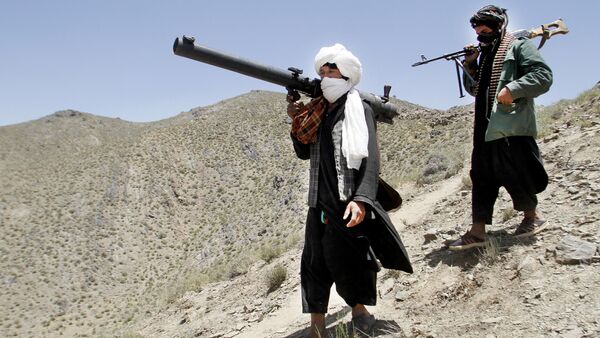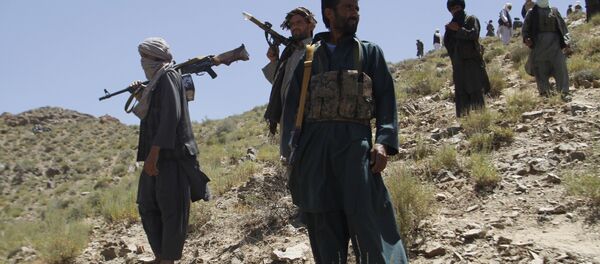Speaking at the White House, the president condemned the group for its actions in Afghanistan's capital, Kabul, and pledged to finish the task of defeating the Taliban begun by his predecessors. Kabul has been hit by several deadly assaults in recent weeks.
Radio Sputnik discussed Washington's strategy in Afghanistan with Sayed Saber Ibrahimi, researcher at New York University's Center on International Cooperation.
RS: Afghanistan said that the Taliban have to be defeated on the battlefield, after US President Trump said that he rejects the idea of talks with the militants. Since then, there has been a lot of talk that [the Taliban] never wanted to talk to Trump. What do you make of all this rhetoric around whether the US really wanted to talk to Taliban and whether the Taliban wants to talk to the US?
Ibrahimi: I think initially both sides wanted to talk to each other; the Taliban previously said they wanted to talk to the US directly, that was their position for a long time, but the problem right now is the intensity of violence and, of course, at times like these, people are making emotional remarks.
RS: Do you think that Trump still sees the possibility of a diplomatic resolution in Afghanistan?
Ibrahimi: From what I saw yesterday, he said that the United States is not ready to talk to the Taliban now. He used the word "now;" from that you could tell that yeah, right now the situation is pretty bad and, of course, he can't talk at the moment. Right now nobody wants to talk to nobody. The Afghan government also said something similar, the Afghan people said something similar, and it's understandable because of the kind of situation — Afghan is mourning the loss of [more than] 100 people over the last few weeks.
RS: How do you explain the timing of that attack by the Taliban? What do you think actually spurred that attack?
RS: How do you see the situation moving from here? Can we expect more attacks or do you think that, with Trump's decision to send more military personnel to Afghanistan, we will see any difference? The experts say that the amount of personnel is not significant, on the background of 15 years of fighting, with a lot more personnel at different periods of time, a war that hasn't really led to anything.
Ibrahimi: Unfortunately, I don't see anything moving in terms of talks and peace any time soon, especially after the US announced that they do not want to talk and the Taliban announced that they will continue their holy war. So right now it's really hard to tell when an actual or genuine peace process will begin. There are talks here and there, but I don't think anything genuine, anything that can move Afghanistan from this conflict into a stable country.
RS: Can you comment on various terror groups and to what extent they are unified? Are they just perhaps unified by a mutual enemy, the US, and what the Taliban refers to as the puppet government — the Afghan government which is in place and is backed by the US and allies? Or are they actually quite divided? Because I believe some have attributed some of the recent attacks to the Haqqani network, for instance; how unified are the Taliban with the Haqqani network? Who are the other players are on the ground?
Ibrahimi: First thing is — there is no difference between the Haqqani network and the Taliban. The Haqqani leader is the deputy Taliban leader, so let's make that clear there: they're one. But in terms of other groups, the Afghan government said and the US government has also said that there are some 20 insurgent — or terrorist — organizations in that region and in the country. There are many of them, it's due to the lack of a strong government and also this whole confusion about the national interest of countries in the region. There is a lot of confusion in the region right now: previous enemies are now friends, previous friends are now enemies. In terms of unity of these terrorist organizations, or insurgent organizations, as you rightly said, the Afghan government is their common enemy and they will do anything to weaken that government, regardless of their difference. The least that it can do is weaken the Afghan national security forces.
The opinions expressed are those of speaker only and do not necessarily reflect the position of Sputnik News.




